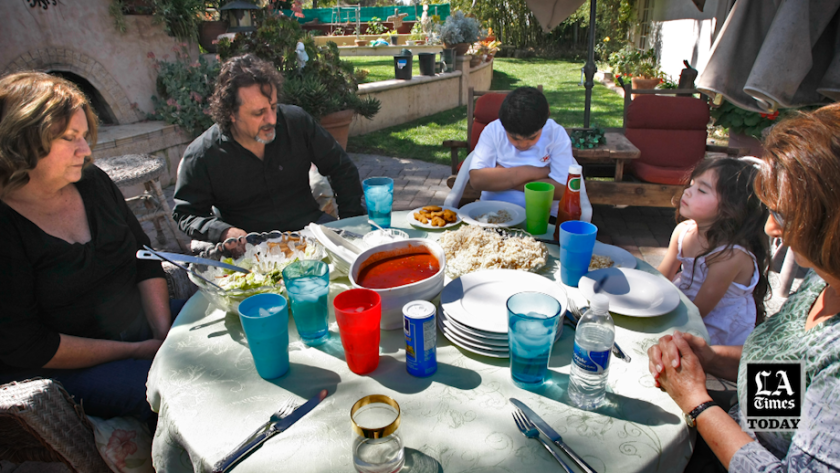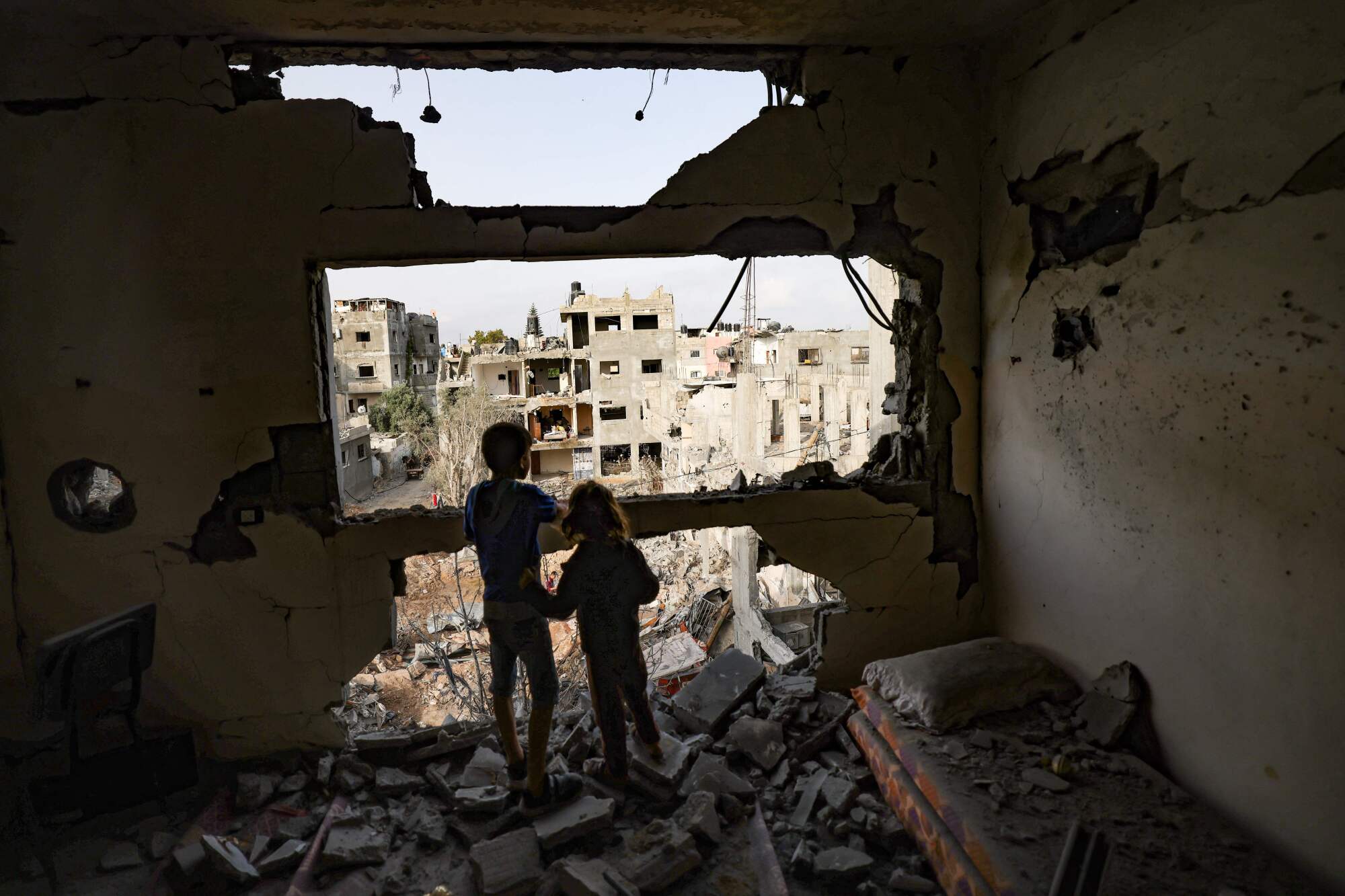
- Share via
Since they fled northern Gaza last month, Abdullah Alathamna and more than two dozen of his relatives have lived in a cramped classroom at a school near the border with Egypt.
At night, he lies down on a thin mattress alongside his wife and two young daughters. He closes his eyes, but rarely sleeps. Explosions sound in the distance, violently shaking the walls.
Each blast transports him to the moment during his childhood when artillery shells fell out of the night sky and his world collapsed around him.
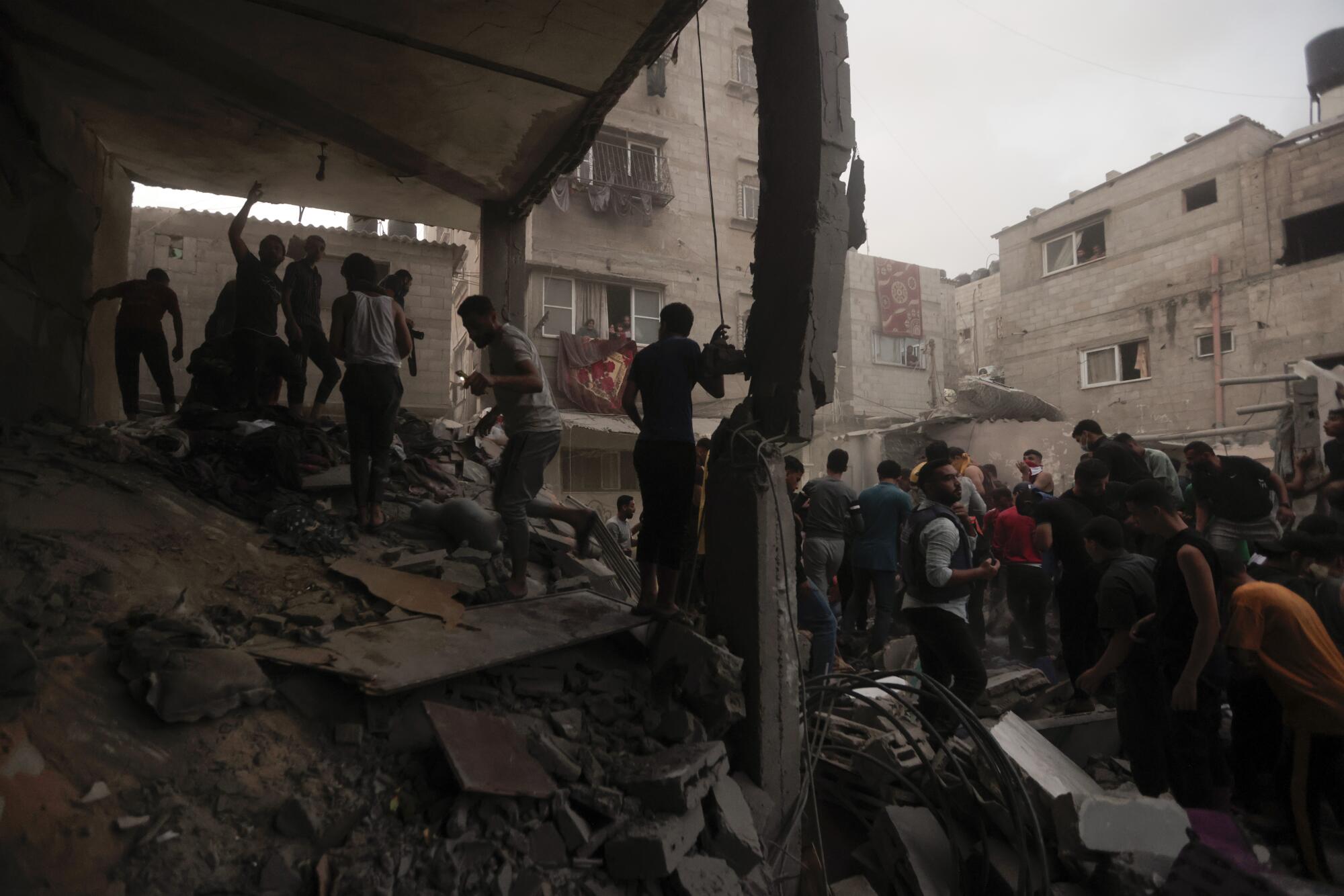
I first met Abdullah shortly after that attack, when he was a boy learning to cope with different shades of loss. I’ve been in touch with him since, over 13 years and multiple wars in the Gaza Strip that have made it impossible for his wounds from that night to ever fully heal.
He tells me he is desperate to shield his daughters from the horrors of this war. From traumas like the one he barely survived.
I want to protect them. But I cannot.
— Abdullah Alathamna, on his children.
“I want to protect them,” said Abdullah, now 24. “But I cannot.”
A lifetime in Gaza has taught him many things. That peace is fleeting. That war is inevitable. And that even the best parent cannot stop a falling bomb.
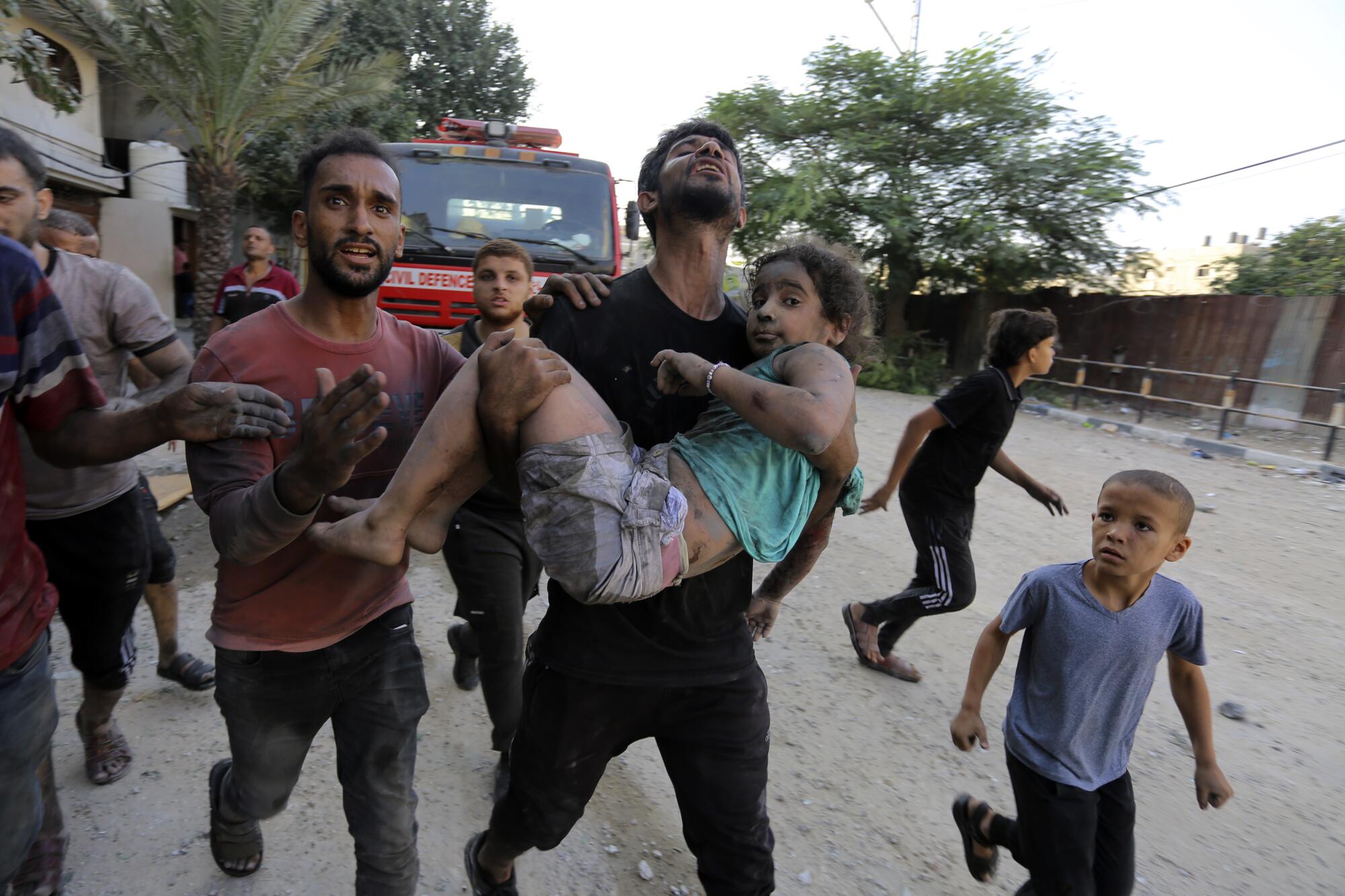
In 2006, Abdullah was 7 and living with his family in Beit Hanoun, a small city on the northeastern edge of Gaza.
A year earlier, Israel had withdrawn troops and settlers from the territory, a narrow strip of land that had been administered by Egypt until Israel took it over in the 1967 War. Palestinians consider the land, which is less than a third the size of Los Angeles, part of their future state.
Many hoped the Israeli pullout would ease tensions in Gaza. Hamas, the Islamist militant group and political party, had pledged to halt suicide bombings in Israel and floated the possibility of a truce.
But the calm didn’t last long. In Israel and the Palestinian territories, it never does.
Within months, Palestinian militants were firing rockets into Israel. In retaliation, Israel was shelling targets in Gaza, sometimes killing civilians in the process. When a family on the beach was hit, the militants kidnapped an Israeli soldier. The Israeli army reentered the territory, storming into Beit Hanoun.
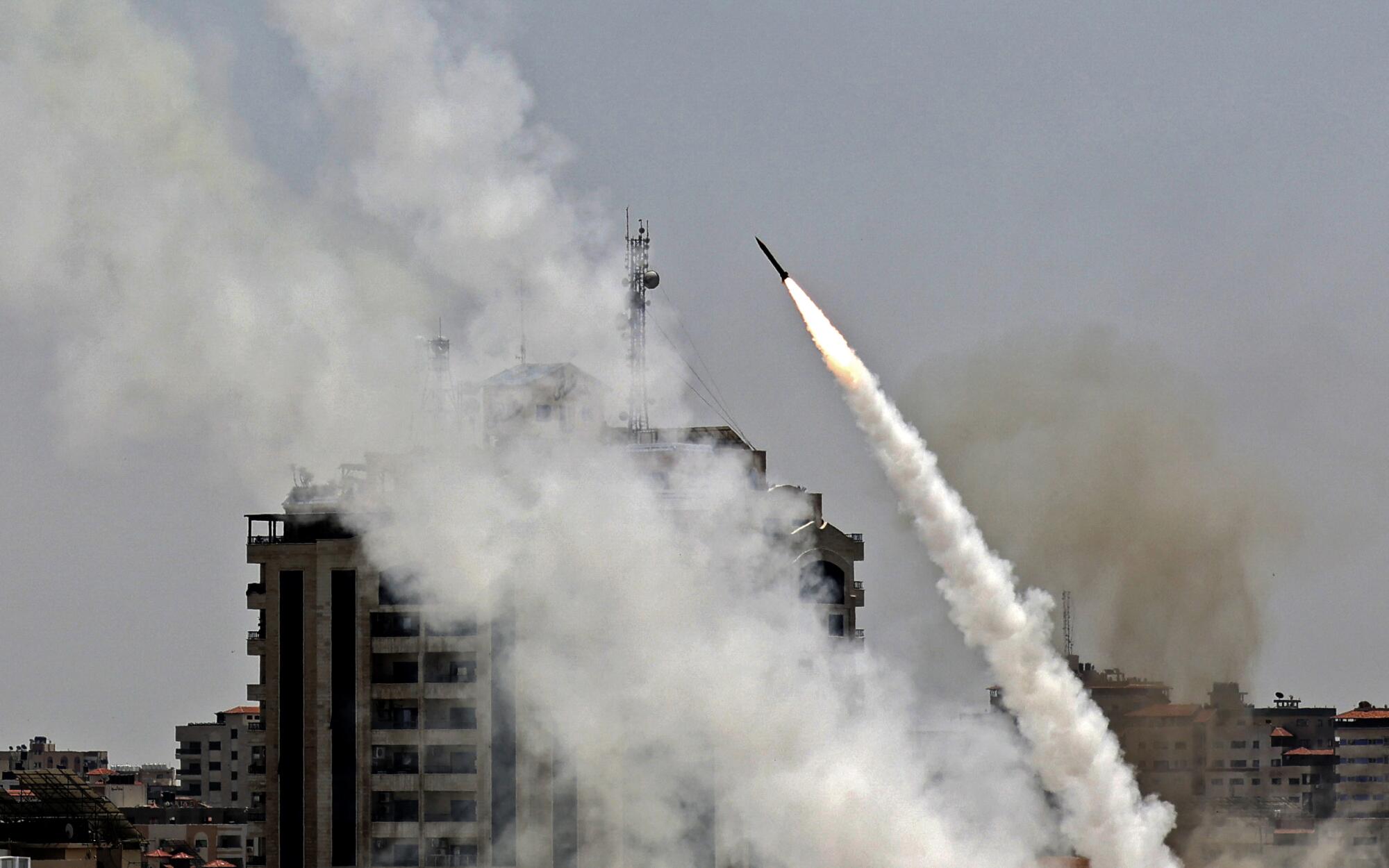
On Nov. 7, Abdullah and his five siblings were tucked into bed and drifted to sleep.
Early the next morning they were jolted awake by explosions. In a blitz of shelling from an Israeli tank that lasted nearly half an hour, Abdullah lost his mother, his two sisters and part of his right leg.
“We saw legs, we saw heads, we saw hands scattered in the street,” a witness told a journalist at the time. Of the 19 people who died, 17 were part of Abdullah’s family.
Israeli officials apologized immediately, saying soldiers had been aiming at militants, but missed their target.
“I’m very distressed,” Israel’s then-prime minister, Ehud Olmert, said of the incident, blaming a “technical failure.”
But it didn’t dampen international outrage. Human rights advocates called the killings a war crime. And Hamas used them to resume calls for attacks on Israel.
In 2007, Hamas violently pushed out its political rivals and seized control of Gaza. In response Israel intensified its blockade, curtailing the movement of food, fuel and people in and out of the enclave. By 2008, the two sides were fighting a full-blown war. Thirteen Israelis and around 1,400 Palestinians were killed.
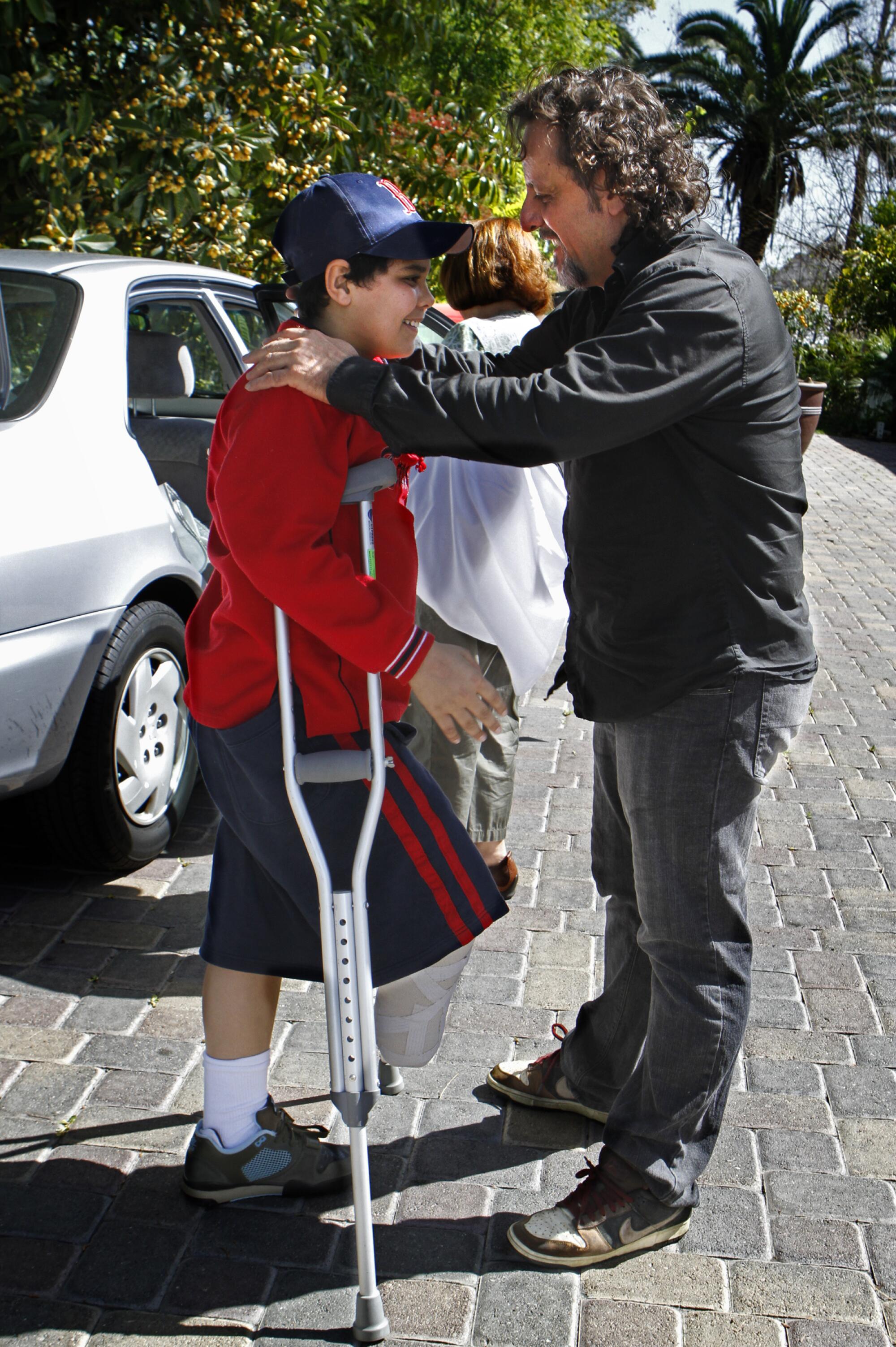
For Abdullah, that time was a blur of hospital visits.
Doctors in Egypt sought to amputate beneath his right shin. But his fibula and tibia bones kept growing, pushing against the skin that had grown around what remained of his limb.
A nonprofit group called the Palestinian Children’s Relief Fund flew him to Oakland and then to Dubai to be fitted for an artificial leg. Because of the botched surgery in Egypt, neither prosthesis worked.
In 2010, the organization brought him to Los Angeles to undergo a corrective procedure, and to equip him with a new prosthesis.
As he recovered at a hospital near MacArthur Park, Arabic-speaking volunteers sat with him in round-the-clock shifts, interpreting for doctors and nurses and brightening his mood with toys and Palestinian sweets.
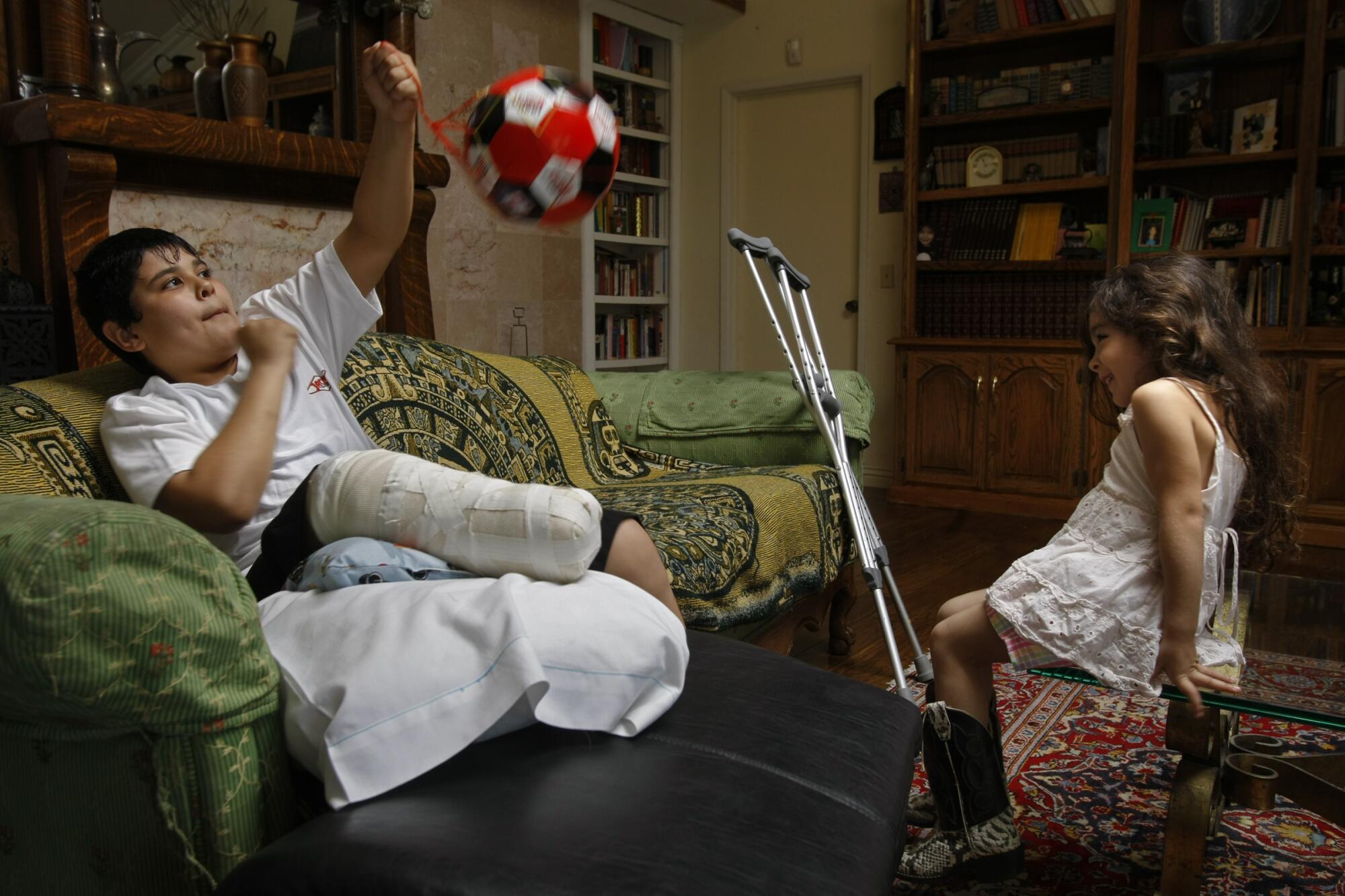
I first met Abdullah then, and later accompanied him from the hospital to the sprawling Yorba Linda home of the family who had volunteered to care for him as he healed. I was a young journalist working for The Times and was inspired by the resilience of a boy who felt at once young and old.
Abdullah had lively eyes, dimpled cheeks and a goofy sense of humor. But his right shin ached constantly, and he carried worn photographs of his deceased mother and sisters.
A healing visit to L.A. for a boy from Gaza
When police helicopters buzzed overhead, he flinched. When his new friends ran off to play sports, he would maneuver his wheelchair into a corner and weep.
His host parents fell in love with the soulful child who had seen so much in his 11 years. “We’d keep him if we could,” his host mother, Joan Abuhamad, told me.
But after a few months, Abdullah returned to Gaza.
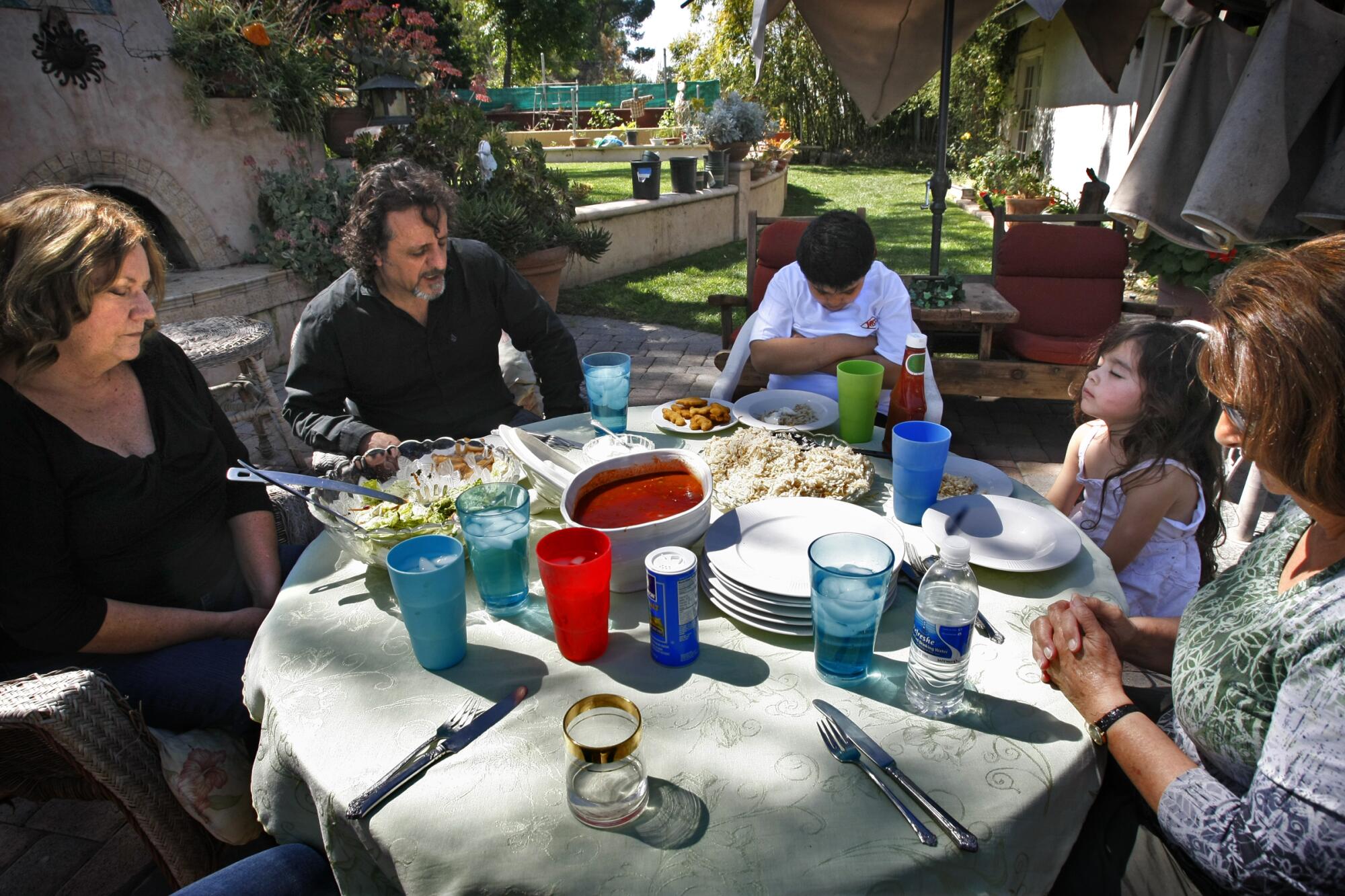
In 2014, I was in Israel for a reporting assignment and asked the government for permission to cross into Gaza.
The border at the Erez crossing was more fortified than any I had ever seen, a labyrinth of concrete walls and surveillance cameras.
While Israel looked and felt a lot like the United States, with modern highways and shopping centers and suburban homes, Gaza felt as if from a different era. Donkeys hauling carts plodded along dusty streets, and schoolgirls in headscarves and long, old-fashioned coats huddled to gossip. Every few blocks, I saw a building that had been reduced to rubble, a constant reminder of past conflicts.
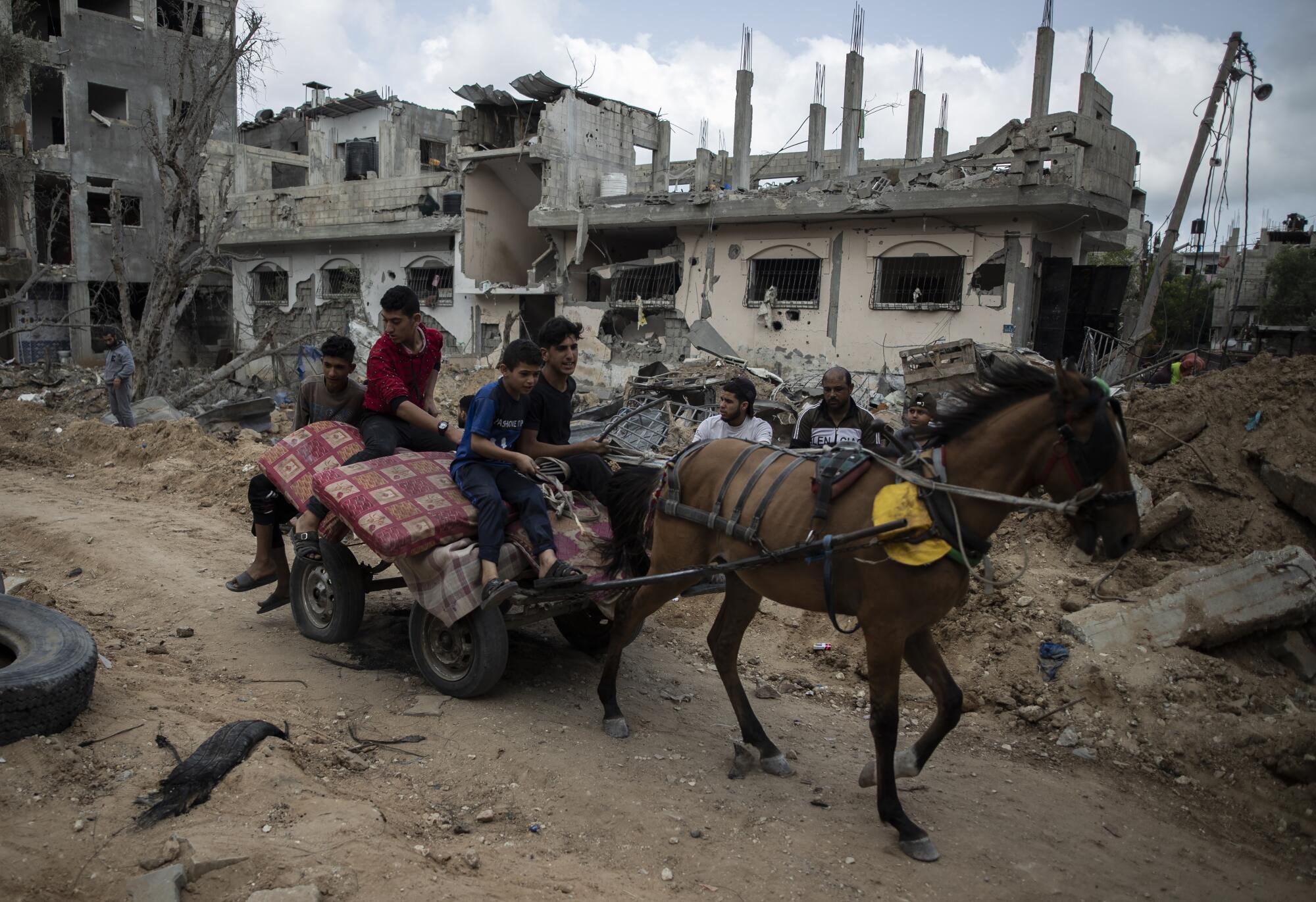
Abdullah, then 14, met me on the street. His limp was barely perceptible as he proudly guided me to his new home.
His father had remarried, and Abdullah’s young half siblings weaved in and out of the bright living room as his stepmother served me coffee and slices of persimmon.
Abdullah and his family politely steered clear of politics, even as I probed them about the Israel-Palestinian conflict and Hamas’ rule of Gaza.
Instead, they focused on Abdullah’s progress. His new prosthesis worked so well, he was now able to play soccer with his friends.
As he chatted with me about movies — specifically the Egyptian comedies that he loved — Abdullah seemed lighter than when I had seen him last. He appeared to be healing, not just physically but emotionally.
But several months after my visit, war broke out again.
This one, which followed Hamas’ kidnapping and killing of three Israeli teenagers, was deadlier than the last, with 73 Israelis and more than 2,300 Palestinians slain.
Yet again, Abdullah’s home was struck with explosives. Shrapnel from the bomb lodged in his back and his left leg. It also destroyed his prosthetic leg.
The family fled in their pajamas, with Abdullah’s father and grandfather taking turns carrying him to safety. They waited out the rest of the six-week war living in a car next to a school run by the United Nations in the Jabaliya refugee camp, hoping that their proximity to the facility would protect them.
Abdullah recovered from his wounds and eventually traveled to Slovenia to be fitted for yet another prosthesis. Again he regained his ability to walk.
In the coming years, there would be smaller outbreaks of cross-border violence. Abdullah, who says he dislikes politics, tried to put his head down and focus on his own life.
He got into motorcycles and started a business fixing up and selling them. He finished high school, earned a college degree in legal secretarial work and got married.
He and his wife lived with their daughters at the family compound in Beit Hanoun and spent weekends at the beach. On birthdays, the family would gather to sing and dance and eat cake. They were happy times, made sweeter, perhaps, because Abdullah knew they wouldn’t last.
Peace, after all, was always temporary. And war, he knew, “comes suddenly.”
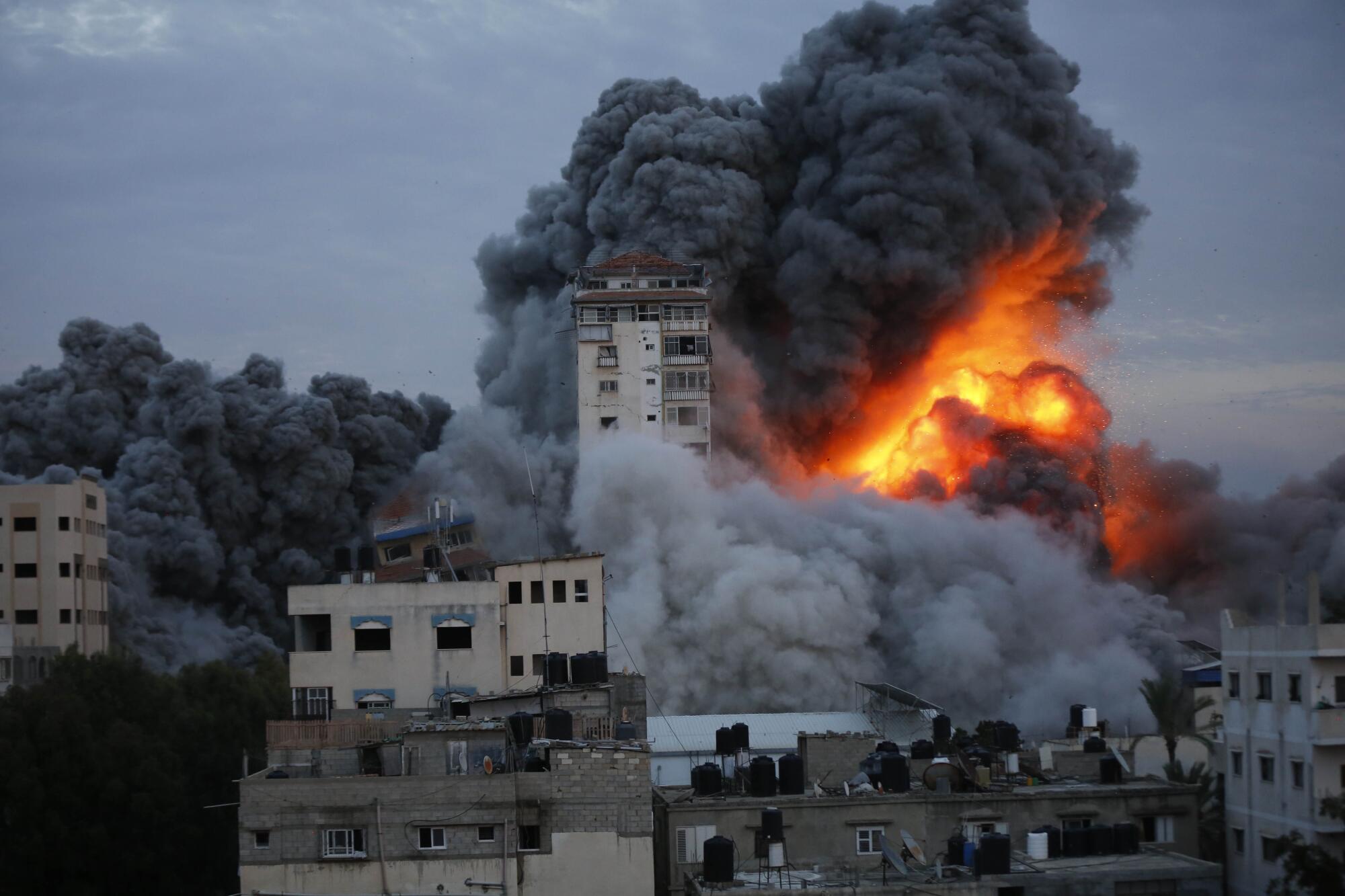
When hundreds of Hamas militants first stormed across border walls and entered southern Israel on Oct. 7, Abdullah felt a surge of pride. Since Israel closed off much of the Gaza Strip 15 years ago, most Palestinians in the territory had never set foot outside its borders.
But when he realized the gravity of what the attackers had done — killing at least 1,200 Israelis, most of them civilians, and kidnapping more than 240 others — he was terrified.
Hamas’ onslaught against neighborhoods, military outposts and an outdoor music festival was the single deadliest attack on Israel in its history. As gruesome details emerged about Israelis, including children and the elderly, killed in their own homes, the country’s armed forces responded by bombing Gaza immediately with the stated aim of destroying Hamas, but leveling entire neighborhoods in the process
Explosions started sounding in Beit Hanoun hours after the Hamas attack. Abdullah and his family fled immediately, telling the children that they were going to visit relatives.
“We left everything behind,” he said. “We left in the middle of the night.”
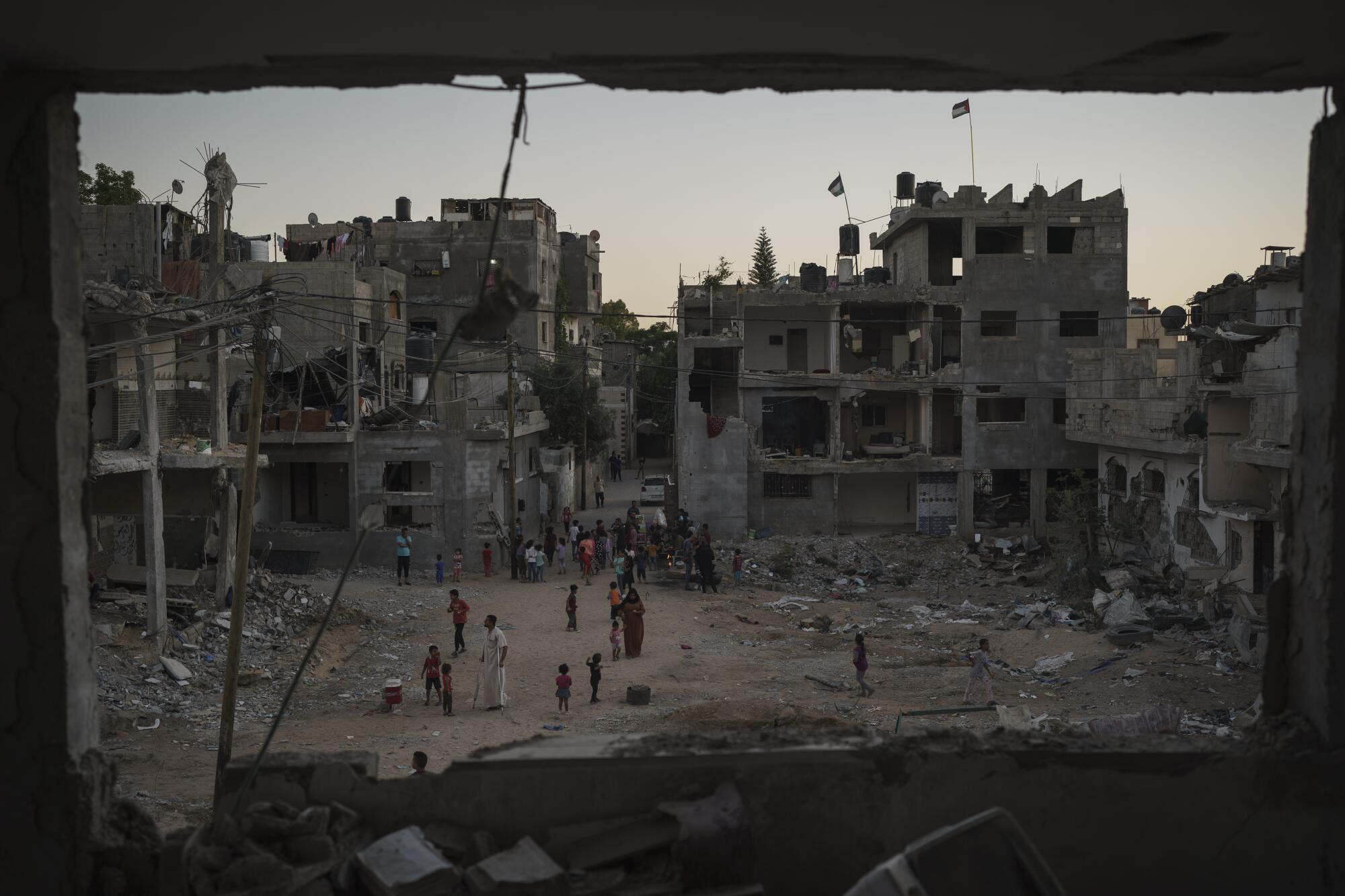
Israel’s defense minister ordered “a complete siege” on Gaza, blocking supplies from entering the territory so “there will be no electricity, no food, no fuel.”
“We are fighting human animals,” said Defense Minister Yoav Gallant, a member of Israel’s far-right Likud Party. “And we are acting accordingly.”
The lack of electricity has hindered communication for the 2.3 million Palestinians living in Gaza.
In the early days of the war, Abdullah’s host mother in Yorba Linda sent him pleading messages on Facebook.
“Let me know if you and your family are safe,” she wrote. “Tell me u r ok.”
Days later, Abdullah typed a heart and brief reply: “I am ok.”
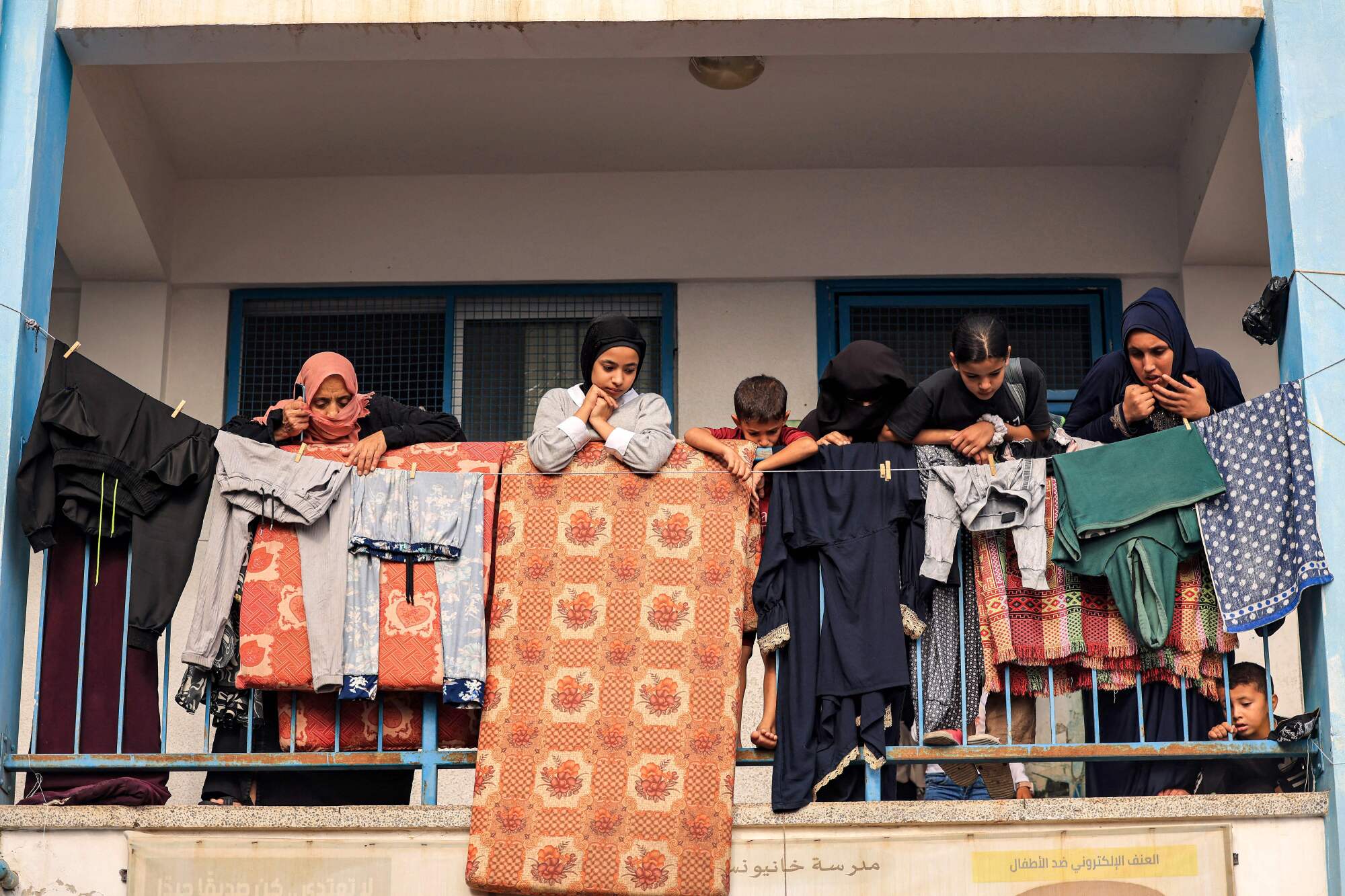
He and his family had first fled to central Gaza, staying with relatives. But as bombs started falling there — Israel said it dropped 6,000 bombs on Hamas targets across Gaza in just the first six days of war — they all decided to move farther south.
They ended up taking shelter in the school, which is located in the city of Rafah and run by the U.N. agency that administers aid to Palestinian refugees. They are among roughly 653,000 displaced people sheltering in U.N. facilities in central and southern Gaza, officials say. On average, every toilet at one of those facilities is shared by 160 people, and every shower unit by 700 people.
In early October, I messaged Abdullah on Facebook.
He responded with an audio message in polished English — which he had learned in school — in a voice that was deeper and more mature than when we last spoke.
He was excited to catch me up about his daughters. Manal, 5, who is named after his mother, has giant brown eyes, favors frilly dresses and loves Barbies. Rimal, the chubby-cheeked baby, recently began tottering around on her own two feet.
But when talk turned the war, he sounded utterly defeated.
“Everything is difficult,” he said. “I’m afraid.”
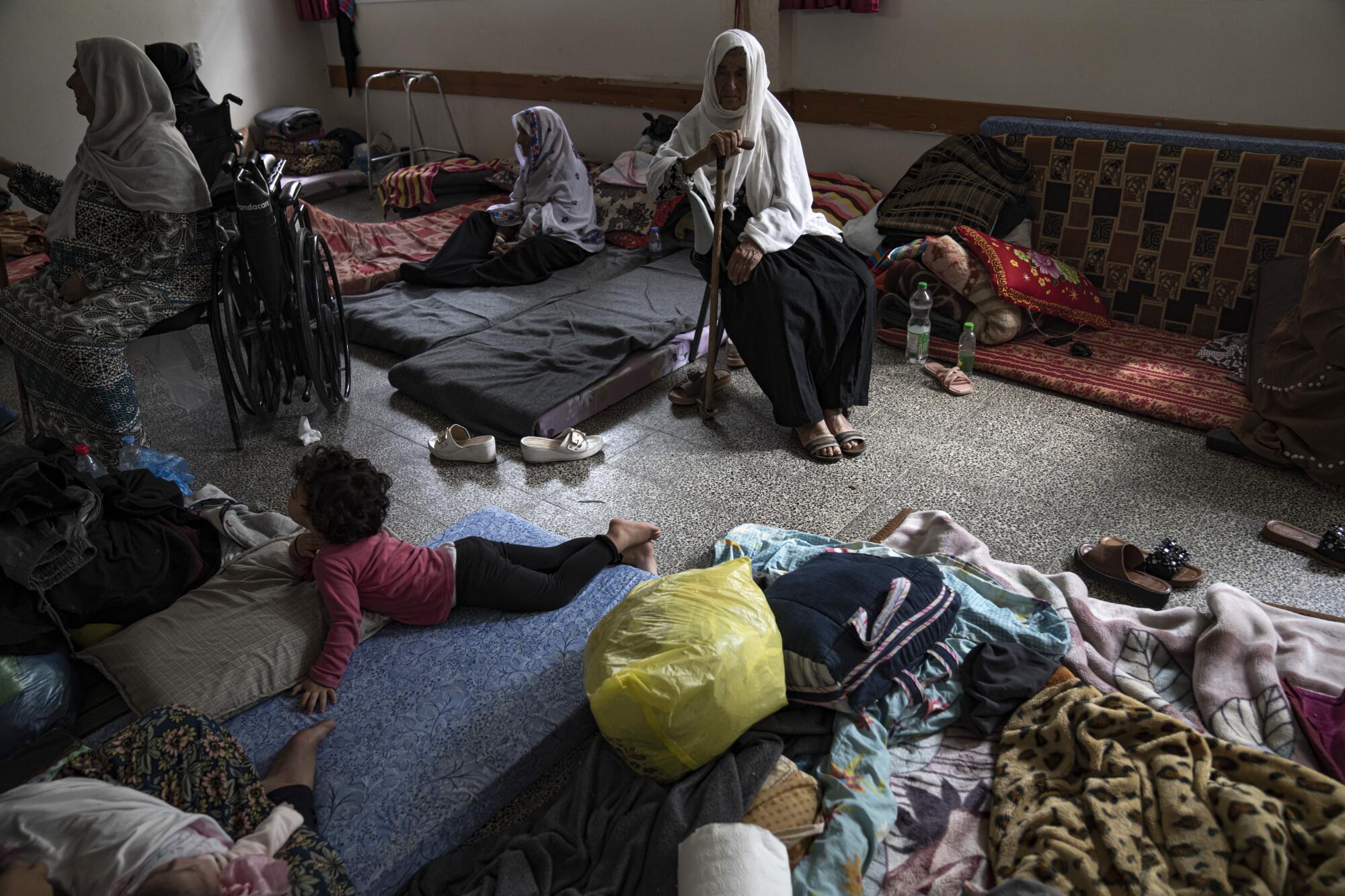
The winter rains have started. His daughters are cold and hungry.
Sickness is spreading among the thousands of people sheltering at the school. There is little food or medicine or clothing, and what’s available costs two or three times the usual price.
In his dash to escape the south, Abdullah damaged his prosthesis and can walk only short distances. Still, he spends much of his day standing in line: waiting for access to a toilet or drinking water or small cans of food doled out by U.N. officials.
When another family member leaves the school to scrounge for something to eat, he worries that they will be killed in an airstrike. Even the school no longer feels safe: Across Gaza, Israeli airstrikes have hit multiple U.N. schools where displaced people were sheltering.
On the rare occasions when internet service is available, Abdullah goes online, scrolling through devastating images of dazed, ash-covered Palestinians — dead and alive — being pulled from concrete wreckage.
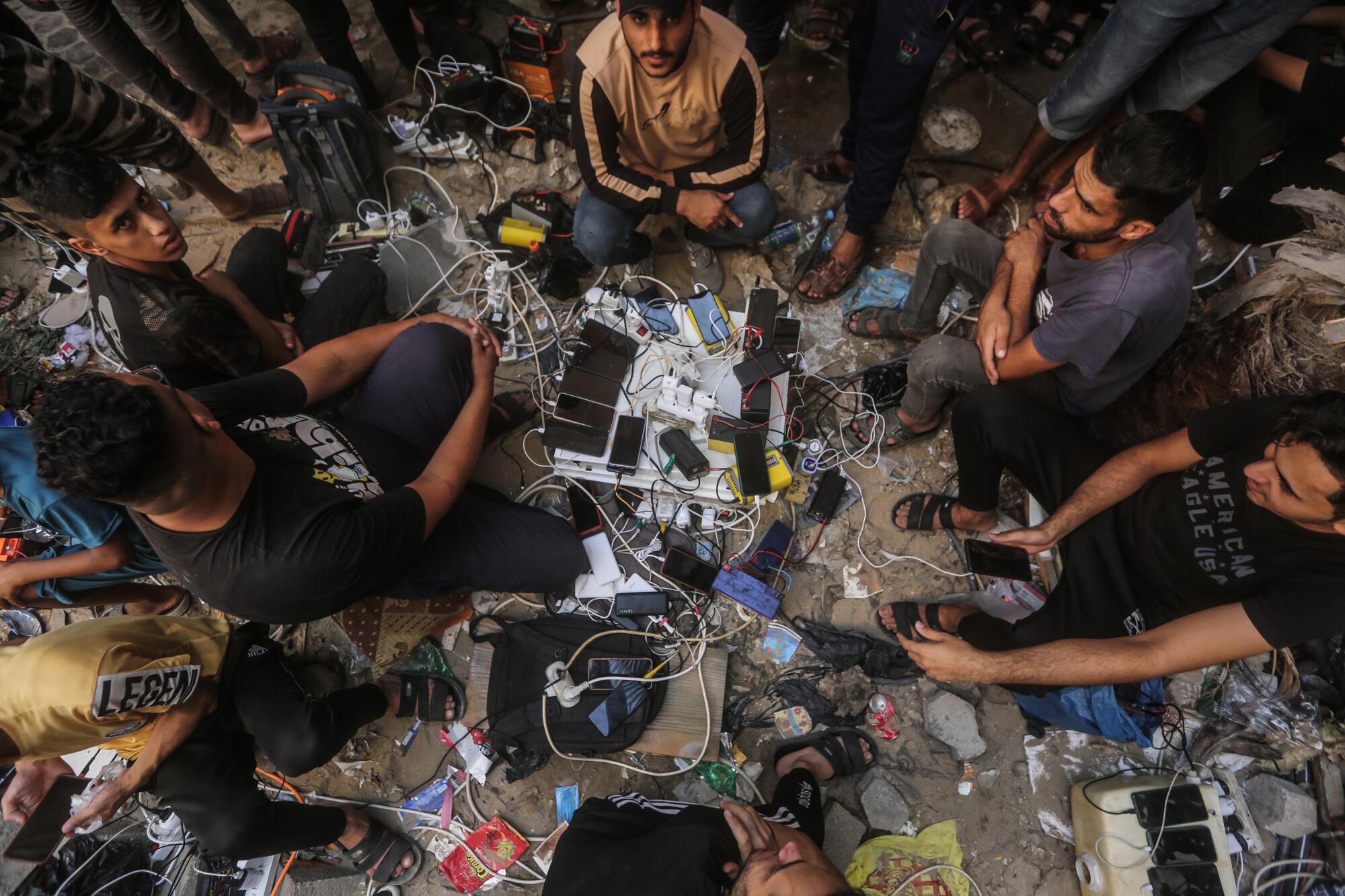
In one video, a thin girl, visibly in shock, is rescued from a bombed-out building.
“Are you taking me to the cemetery?” she asks one of the men carrying her on a gurney.
“No, sweetheart,” the rescuer says. “You’re alive and beautiful like the moon.”
Nearly half of Gaza’s population is younger than 18.
Of the more than 12,300 people who have died there since Oct. 7, at least 5,000 were children, according to Palestinian authorities.
“Gaza is becoming a graveyard for children,” United Nations Secretary-General António Guterres said this month.
Abdullah’s heart aches — for the kids who have lost their lives, but also for those who have lost limbs or lost parents and who will spend the rest of their lives learning to cope.
He has no memories of his mother. Only photographs. All of which are back at his home, which neighbors say has been destroyed.
Aerial pictures of Beit Hanoun and videos taken by Israeli soldiers fighting there show a wasteland of mangled buildings.
Abdullah knows that someday this war will end. But he’s not sure how much of Gaza will be left.
Will he and his family have a home to return to? What will happen when Israeli soldiers in Gaza turn their attention to where he and hundreds of thousands of other displaced civilians are sheltering? What will his children remember of this harrowing time?
For now, he lies to them. He says the bombs that sound in the distance are part of an elaborate war game, and that no matter what happens, he will keep them safe.
And at night, he holds them and does not sleep.
- Share via
Watch L.A. Times Today at 7 p.m. on Spectrum News 1 on Channel 1 or live stream on the Spectrum News App. Palos Verdes Peninsula and Orange County viewers can watch on Cox Systems on channel 99.
More to Read
Sign up for Essential California
The most important California stories and recommendations in your inbox every morning.
You may occasionally receive promotional content from the Los Angeles Times.
